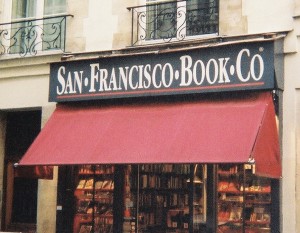 On the surface, independent bookstores would seem a natural fit for indie authors and publishers. Both operate outside the so-called “mainstream” of large retail chains, mass-market-targeted product, and exclusive agent/publisher arrangements.
On the surface, independent bookstores would seem a natural fit for indie authors and publishers. Both operate outside the so-called “mainstream” of large retail chains, mass-market-targeted product, and exclusive agent/publisher arrangements.
And yet, barriers persist: the bookselling industry is a well oiled machine of large distributors, returnable and remaindered books, and hefty discounts designed for the massive print runs of the mainstream publishing business. Considering that most indie publishers operate on a print-on-demand model — with commensurately higher unit costs and an inability to offer returnable stock — it would appear that they are frozen out of the supply chain — a chain that even the smallest of independent bookstores relies on.
But these realities can be overcome, and once they are, the natural fit of independent players becomes apparent: print-on-demand may be more expensive per-unit than short-run offset printing (a 250-page book typically costs $3 to $4 to print on-demand, versus less than half that using a traditional printer)… but there’s also no issue with inventory, itself typically a euphemism for “piles of book boxes sitting unsold.” An independent publisher can arrange for shipments direct from printer to bookseller, and offer the bookstore the same consignment-basis, returnable-stock policy they’re accustomed to receiving from the majors. For the publisher, it’s a bit more work — on top of their grass-roots marketing efforts promoting their titles, they now take on the role of distribution middleman. But as with everything in the Internet age, this process is greatly simplified: software accounting programs such as QuickBooks allow small publishers to bill bookstores and handle returns easily. This process might not scale well to thousands of stores — but many dozens can be capably handled by even the smallest of indie publishing houses. In exchange, they receive real-life storefront exposure — essentially free advertising. Better yet, since most indie booksellers congregate around major centers or college towns, the opportunity to target an optimum clientele is unaparalleled.
 Okay then… so what’s in it for the bookstore, in exchange for dealing with another book supplier and the added paperwork that implies? In addition to new and distinctive content, the real synergy comes from book events: indie authors and publishers are hungry to connect with readers. The immediate conclusion many jump to is “use the Internet” — with the implied focus on Amazon and e-book distribution that freezes out local booksellers. Yes, the online marketplace is here to stay and makes up a major sales channel for publishers of all stripes… but it’s also a vast netherworld of me-too websites, spam, and other assorted flotsam that makes it tough for small-scale book publishers to find their readership.
Okay then… so what’s in it for the bookstore, in exchange for dealing with another book supplier and the added paperwork that implies? In addition to new and distinctive content, the real synergy comes from book events: indie authors and publishers are hungry to connect with readers. The immediate conclusion many jump to is “use the Internet” — with the implied focus on Amazon and e-book distribution that freezes out local booksellers. Yes, the online marketplace is here to stay and makes up a major sales channel for publishers of all stripes… but it’s also a vast netherworld of me-too websites, spam, and other assorted flotsam that makes it tough for small-scale book publishers to find their readership.
The book event — most commonly the reading & signing, though unconventional “themed” activities are also commonplace — is where indie publishers and indie bookstores can come together. Mainstream authors and publishers schedule book tours all the time — but for the less-well-known independents, this is a vital promotional opportunity as it enables readers to hear about new content for the first time. For booksellers, meanwhile, it brings traffic into the store that might not otherwise walk in: a successful book event can draw dozens of people, all of whom will likely purchase not only the book around which the event is centered, but also other works they may find interesting while browsing the shelves. For a large bookseller, this bump in traffic may be trivial — but for the nowadays-beleaguered indie bookseller, it represents a golden opportunity.
Just as TV didn’t displace theatrical first-run movies, it’s unlikely the online book marketplace and e-books will displace booksellers. The best way for indie booksellers to remain relevant is to provide “value-added” content — not merely by offering personalized service and hard-to-find titles, but by teaming up with publishers operating outside the mainstream who can organize events, draw in customers, and help build community.
Tags: 2 Comments





And a book launch in Melbourne, Australia, with other capital cities to follow?? As soon as I saw the name on gay.com I thought that is a South African name, and I believe I am correct.
As a gay, Jewish, 83-year-old expat South African, I know such names as Yedeiken from my past, way back when I was somewhat closer to your present age.
Best wishes with the book and I hope it will be on sale here soon if it isn’t already!
Mannie De Saxe
[…] His event was a boffo success, with a full house at Borderlands Books, San Francisco’s sci-fi bookstore. They gave a big plug to indie publishing (Jamil did it this way as well, with some help from yours truly, after encountering endless frustration at the hands of a small-time L.A. publishing house); it’s good to see indie bookstores embracing their indie author kin — something I wrote about some months back. […]